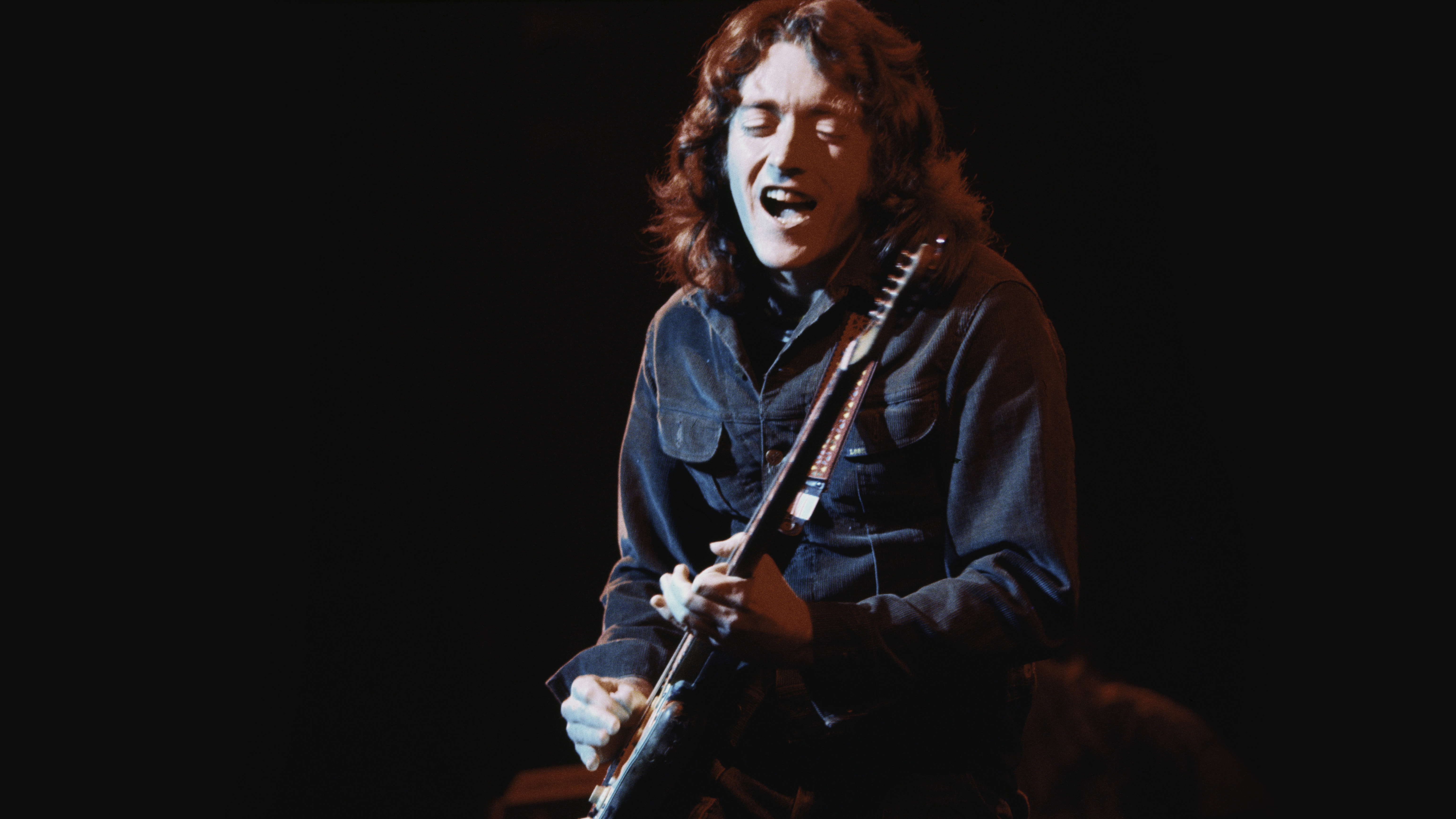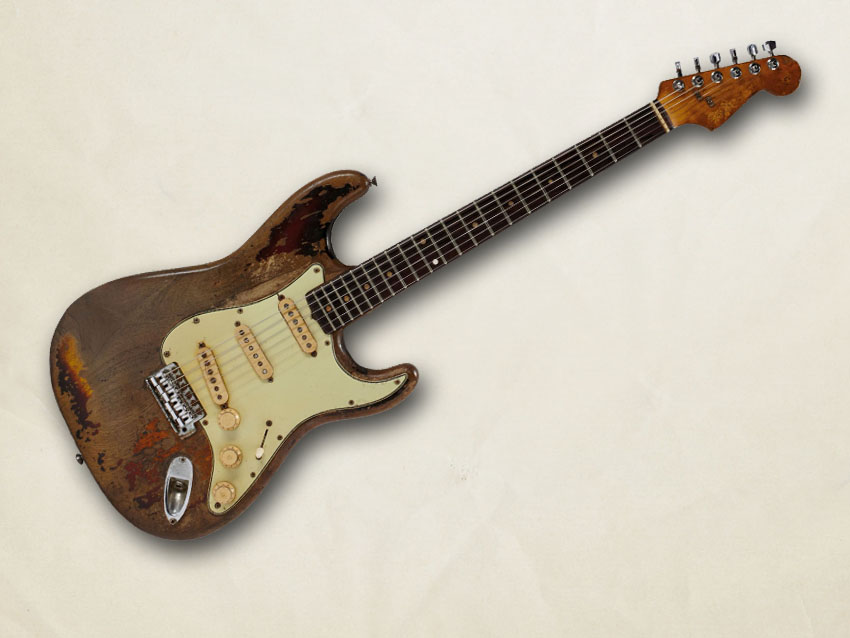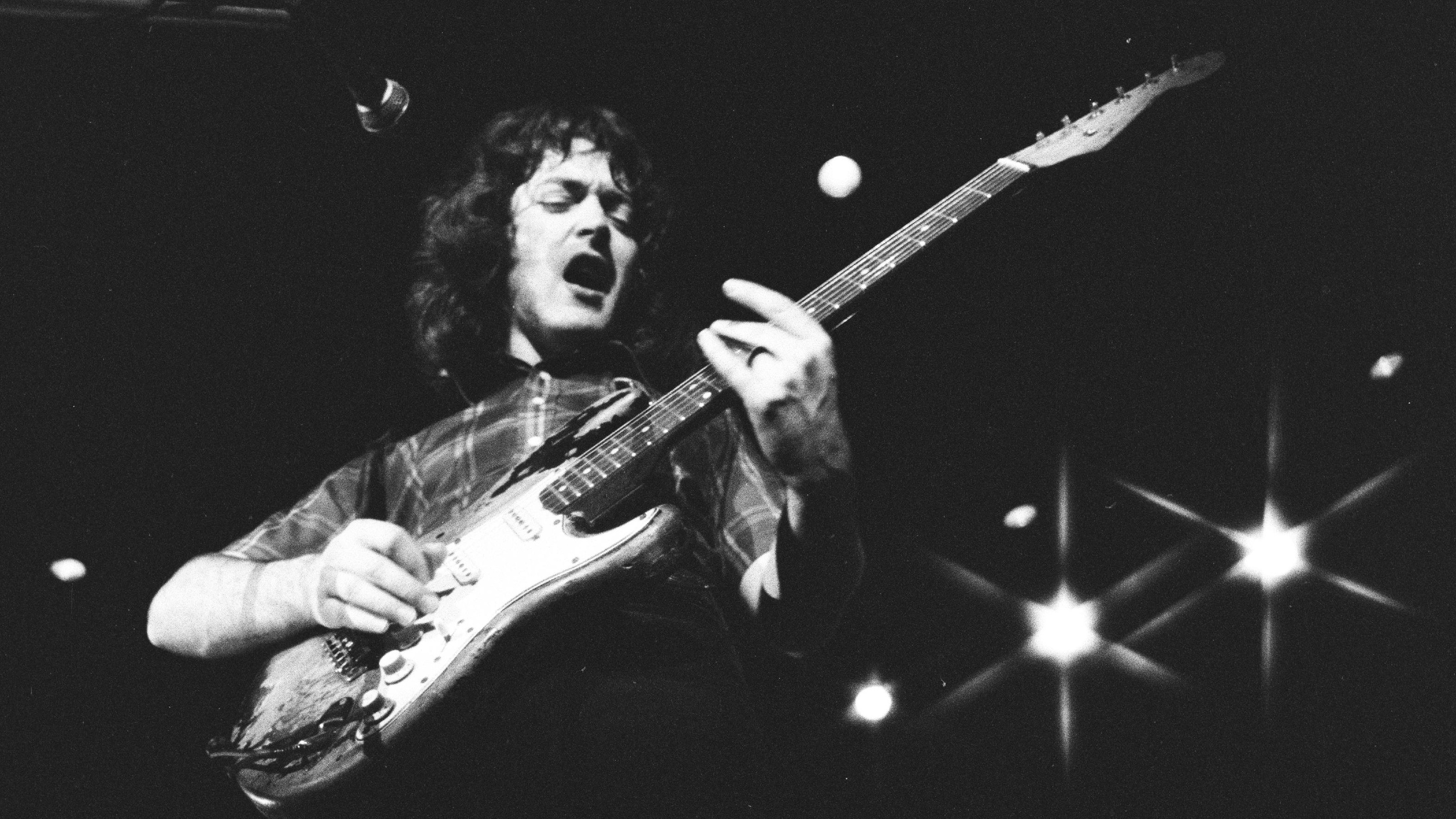The story of Rory Gallagher's Rolling Stones audition: "All of the music papers were full of speculation. It's a bit like when the Pope dies and you get pictures of all these people who might succeed him"
Stunned by the sudden departure of Mick Taylor, The Rolling Stones spread the net far and wide in their search for a suitable replacement. One of the players high up on their list of possibles was Rory Gallagher

Want all the hottest music and gear news, reviews, deals, features and more, direct to your inbox? Sign up here.
You are now subscribed
Your newsletter sign-up was successful
Ronnie Wood was sitting on a sofa between Mick Jagger and Mick Taylor when the latter leant over and informed the former that he was leaving The Rolling Stones. It was December 1974, at a party Robert Stigwood was throwing for Eric Clapton, and Jagger was dumbfounded.
“Mick said ‘You’re joking?’,” recalled Wood on The Ronnie Wood Show on Absolute Radio in 2013. “And Mick [Taylor] said, ‘No I really am’. And he got up and left and Mick turned to me and said, ’What am I going to do? Do you think he was serious?’. I said ‘I think he was, Mick’. Mick said, ‘Would you join?’. I said ‘Well yeah, but I don’t want to split The Faces up’. And he said, ‘No, nor do I’. And I said, ‘I’ll tell you what, ring me up if you get desperate’.”
It’s an anecdote that Wood has recounted many times, always with a slight hint of mischievous glee. He would, of course end up joining the band, on 23 April, 1976, but not before the call had gone out that the world’s greatest rock and roll band were looking for someone to fill their departed guitarist’s shoes.
"All of the music papers were full of speculation," said Chris Spedding, who reportedly received a call from Jagger asking him if he would join the Stones on a US tour. "It's a bit like when the Pope dies and you get pictures of all these people who might succeed him."
Jeff Beck was a contender, as were Wayne Perkins and Harvey Mandel. Steve Marriott’s name was in there too.
"Keith wanted him in, but there was no way that once Steve opened his mouth Mick would have him in the band," recalled Marriott's wife, Pam, in his biography, Steve Marriott: All Too Beautiful. "He knew Steve would never stay in the background."
Then there was Rory Gallagher, a hardworking blues guitarist from County Cork whose searing live performances placed his star firmly in the ascendant. The soft-spoken Gallagher had recorded three albums with his trio Taste, before signing to Polydor in 1970 and releasing his debut album under his own name.
Want all the hottest music and gear news, reviews, deals, features and more, direct to your inbox? Sign up here.
Gallagher’s output was prolific. His second album Deuce was released in the same year, while Live In Europe (1972) and 1974's Irish Tour cemented his reputation as an electrifying performer. The album captures Gallagher at his finest and features scorching performances of some of his very best songs such as A Million Miles Away and Walk On Hot Coals.
The Stones’ interest in Gallagher was not surprising. Like them, he drew right from the source – blues players such as John Lee Hooker, Leadbelly, Buddy Guy, Muddy Waters and Albert King.
It was Stones keyboardist and co-founder Ian Stewart who was given the task of getting in contact with Gallagher. It was early January, 1975 when Stewart picked up the phone to dial the number he had been given. For Gallagher, it came as a complete surprise.
When I woke him, he thought I was winding him up
Donal Gallagher
“It was about one o’clock in the morning,” Gallagher’s brother Donal told The Telegraph in 2020. “Back then, if the call was overseas, you had to go through the operator. She told my mother she was connecting. I took the call. I was a bit defensive because, in those days, there were a lot of kidnappings [by the Provisional IRA]. The guy says, ‘My name is Ian Stewart… I’m looking for Rory Gallagher’. Rory had gone to bed on one of his rare early nights. When I woke him, he thought I was winding him up. But he agreed to go to Rotterdam to jam with them.”

The timing wasn’t great for Gallagher. He was due to begin a Japanese tour but he was intrigued enough to accept the invitation and on 23 January 1975, he boarded a flight from Heathrow to Rotterdam.
Mick Jagger held Rory Gallagher in high esteem as a player and went to the airport personally to greet him. In the arrivals lounge at Rotterdam airport, Jagger soon spotted the 26-year-old from County Cork, who was lugging a suitcase, a guitar case containing his battered 1961 Stratocaster and an amp.
“Hi Rory, welcome to the band,” beamed Chess as he enthusiastically stepped forward to shake Gallagher’s hand, “You’re the guy for the job”
At the taxi rank outside, Jagger allegedly haggled over the price of the 15-minute ride from the airport to the 22,000 capacity De Doelen Concert Hall, where the Stones were rehearsing for their upcoming tour. Once at the venue, Gallagher stepped out onto the stage of the cavernous, echoey building.
There to meet him were the rest of the Stones, with the noticeable exception of Keith Richards. Also at the venue was Marshall Chess, record producer and son of Leonard Chess, co-founder of seminal Chicago blues label Chess Records. By this point, Chess was the de facto manager of the band.
And so began three days of informal jamming with The Stones. According to Donal, it was a union that yielded real creative results.
There was a lot of Rory riffs on that album that was used later on
"I remember him telling me the first night Keith didn’t come down,” Donal told Eon Music in 2020. “So Mick said to Rory; ‘Can you start me up with a riff? I’ve got this song, but can you help me with a riff?’, and Rory said ‘Okay’, and Jagger was just filling up with a coffee from a vending machine, and it burned him, and he said; 'Oh jeez, that’s hot stuff!'. And Rory said ‘Oh, is the title Hot Stuff? and he said ‘Oh yeah, that’s a great title!’. So yeah, there was a lot of Rory riffs on that album that was used later on."
Gallagher had always been impressed by Charlie Watts’ playing and was excited about getting the chance to actually play with him. Gerry McAvoy, who played bass with Gallagher for 21 years, recalls speaking to him soon after the audition. “I recall Rory saying Charlie was on the beat, in the pocket like it should be,” McAvoy told The Belfast Telegraph. McAvoy recalled that Watts later visited Rory and his band in the Musicland Studios in Munich, when they were recording their album Calling Card.
Despite encouraging results, the sessions really didn’t progress sufficiently, mainly due to the absence of Keith Richards. “He was going through a pretty bad time from what I understand,” recalled Donal.

On the last day of the sessions, when there was still no sign of Richards, Gallagher went up to his hotel to try and coerce him down to the sessions. Gallagher was due to leave for his Japanese tour the following morning and needed to know if he and the Stones had any real future.
Rory said, ‘Please let me know what’s going on because I’ve got to be on a plane to Tokyo tomorrow
“On the final night, Keith had come down, and they had done sessions over the days, but Mick and Keith weren’t talking to each other," Gallagher’s brother Donal told The Telegraph. "So Rory said, ‘Please let me know what’s going on because I’ve got to be on a plane to Tokyo tomorrow‘. And Mick said, ‘Keith wants to have a good long chat with you. Please go up. He’s waiting in his suite upstairs’. And Rory went up, and Keith was comatose in the bed”.
According to Donal, Gallagher stayed up all night, returning every half hour to try and talk to Richards, but he couldn’t raise him. "So Rory made up his own mind, for whatever reason, and just packed up his guitar and amp, and I met him at Heathrow with a fresh suitcase.”
Gallagher left a note for the band with details of how to contact him but he never heard from them again. For their part, the Stones have never talked much about what happened over those three days in Rotterdam back in January 1975.
It’s tempting to ponder what Rory Gallagher could have brought to the band. Gallagher was all about grit, feel and sweat-soaked performances and who’s to say his playing and commitment wouldn’t have lit a real fire within the Stones and helped to reshape their sound.
That said, Rory was a natural bandleader and he had a clear vision for his own style and sound. For all his humility, Gallagher was driven and had a clear idea of where he was heading.
If he’d been in the Stones he wouldn’t have been singing and that was one of his strong points
Bill Wyman
In Ian Thullier’s 2010 documentary Ghost Blues: The Story Of Rory Gallagher, Bill Wyman acknowledges that Rory “played some nice stuff” during his three days with the Stones in Rotterdam. But Wyman questions whether there was much likelihood of it succeeding.
“We had a good time with him but I think Mick and Keith felt that he wasn’t the kind of character that would have fit. If he’d been in the Stones he wouldn’t have been singing and that was one of his strong points. He would have just been playing solos.. and learning to be subservient to the two big egos. I don’t think it would have worked.”

Neil Crossley is a freelance writer and editor whose work has appeared in publications such as The Guardian, The Times, The Independent and the FT. Neil is also a singer-songwriter, fronts the band Furlined and was a member of International Blue, a ‘pop croon collaboration’ produced by Tony Visconti.